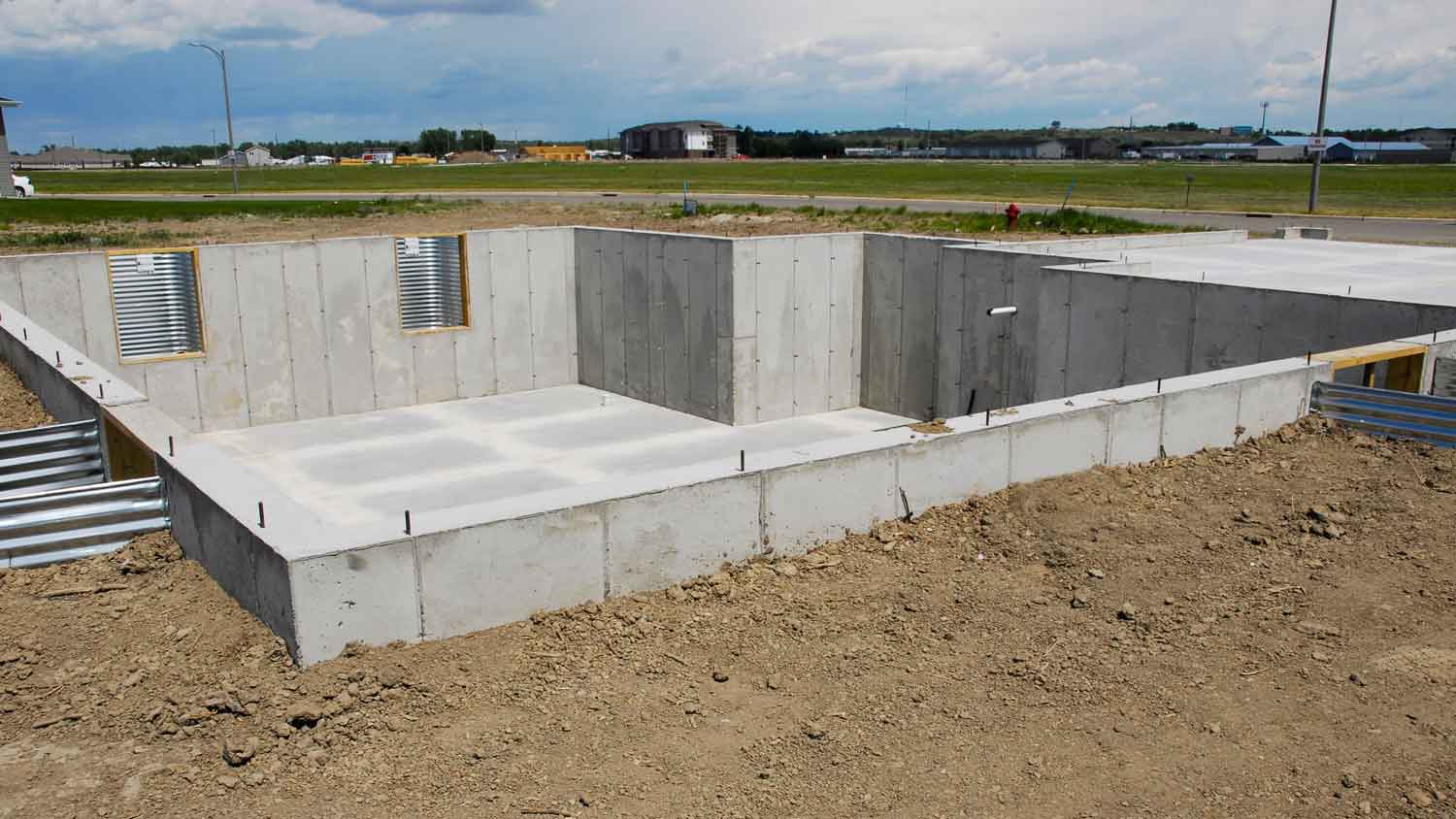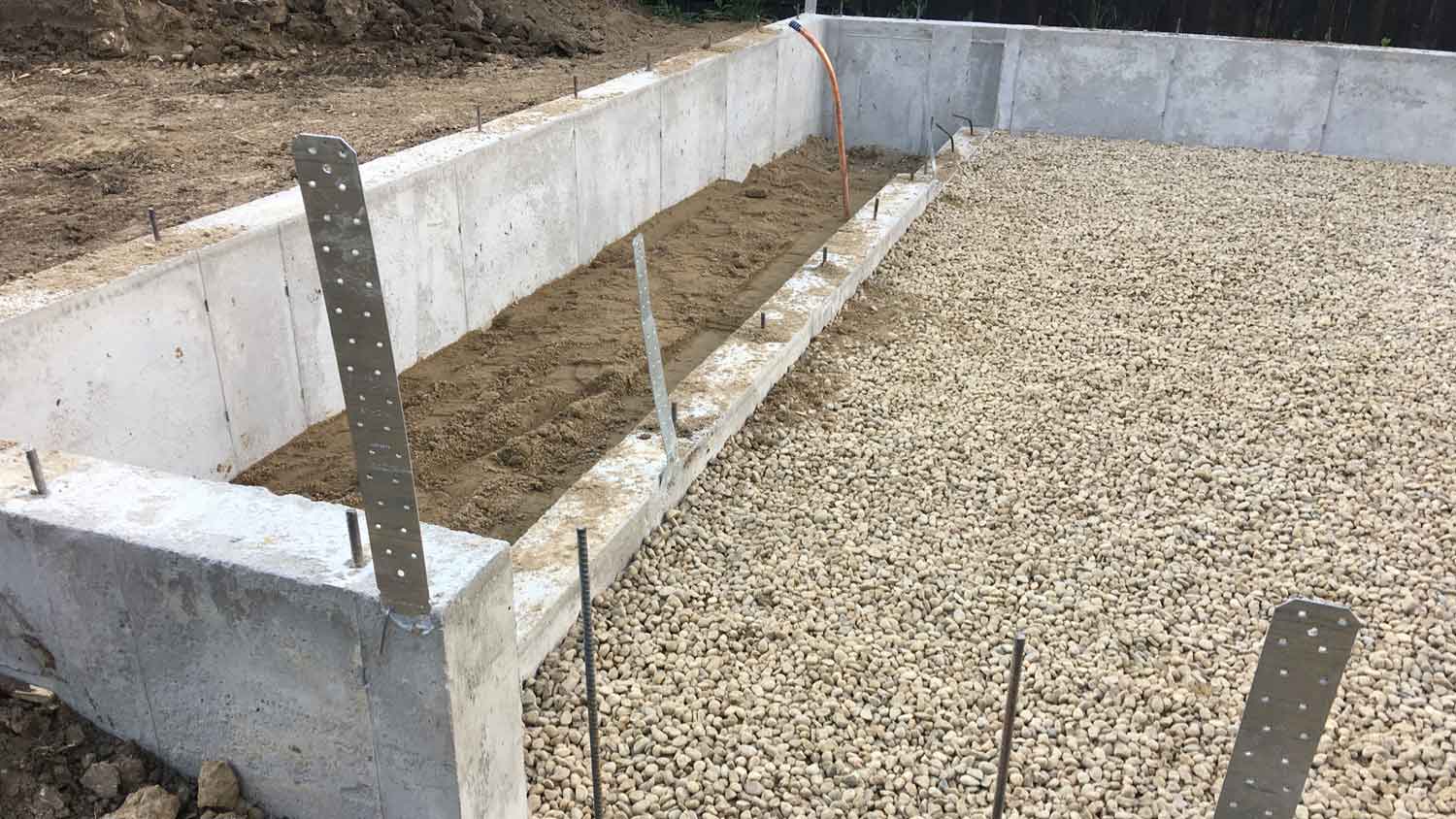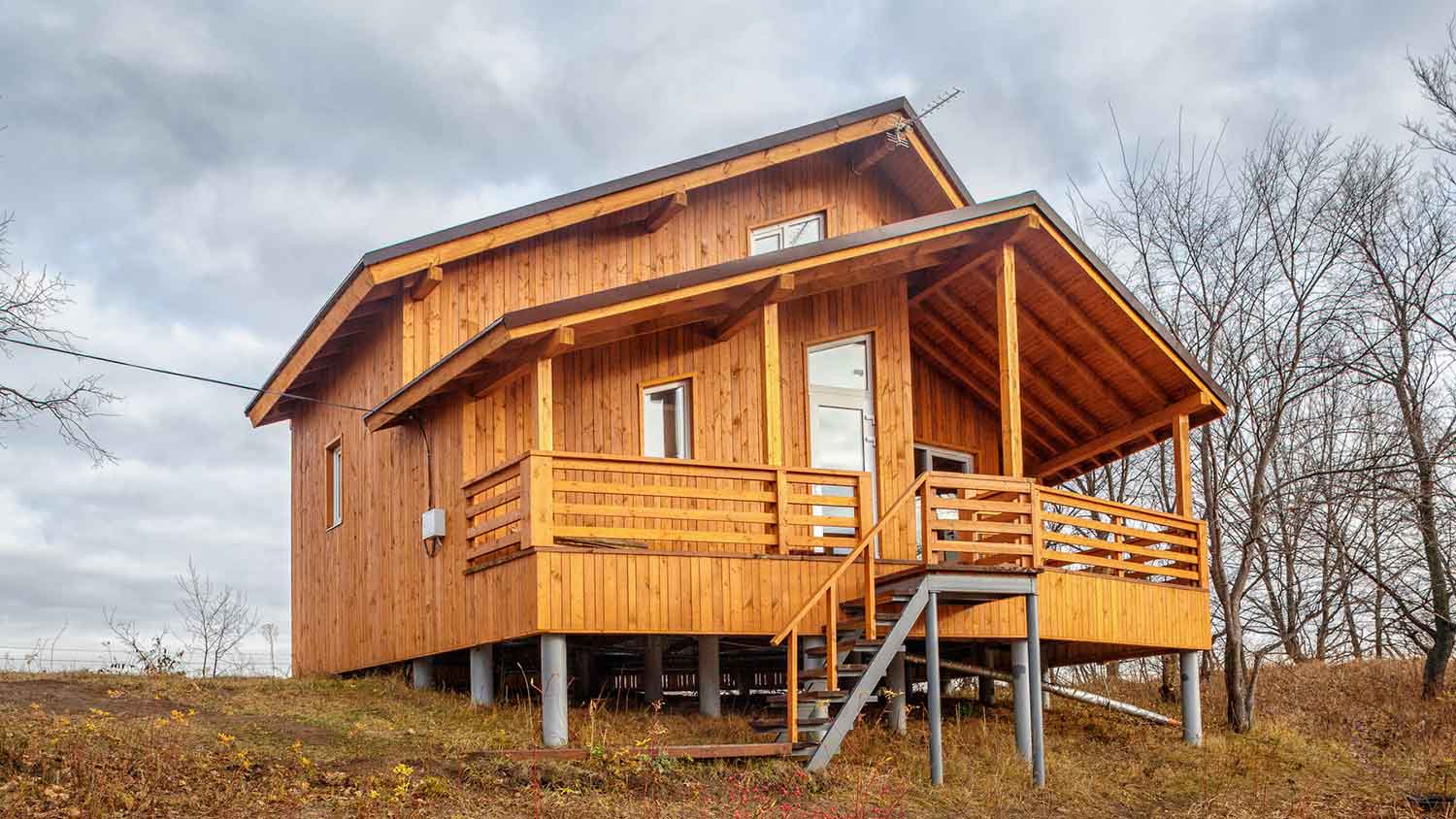5 Mobile Home Foundation Types You Need to Know
A guide to getting your mobile home grounded


Selecting a foundation for your mobile home requires weighing the pros and cons of all the options, and deciding which is appropriate for your location and the home addition permits you need.
All mobile home foundation types fall into one of two categories: permanent or non-permanent. The definition of what a permanent foundation is can vary based on your city and state. And while pier and beam foundations are the most popular choice, some types of mobile home foundations are better, for instance, in earthquake-prone areas than others. Read along to discover all the types of mobile home foundations and decide which is the best for you.
| Type of Foundation | Cost Range |
|---|---|
| Pier and Beam | $1,000–$2,000 |
| Slab | $4,000–$9,000 |
| Basement | $12,000–$25,000 |
| Pit | $2,000–$6,000 |
| Runner | $2,000–$8,000 |
1. Pier and Beam Foundation

This is one of the most popular types of foundations for mobile homes. Pier and beam foundations are constructed with anchors that hold your home down and steel straps that connect them to the frame’s beams, which are typically made of concrete. The beams are fixed to a concrete slab. Since pier and beam foundations can settle over time, it's important to know how to hire a foundation repair contractor.
| Pros | Cons |
|---|---|
| Freeze and flood-resistant | Leveling issues over time |
| Low cost | Less visually appealing |
| Safe for earthquakes | Lower resale value |
Best for: Budget-friendly foundation in earthquake zones
2. Slab Foundation

The name says it all: A slab foundation is essentially one large piece of poured concrete, usually placed on top of 4 to 6 inches of gravel or sand. Usually, the concrete slab is slightly larger than the home, and home skirting is used to cover the gap between the slab and the home.
| Pros | Cons |
|---|---|
| Low cost | Not safe on steep slopes |
| Quick and easy construction | Poor insulation against freezing weather |
| Safe for earthquakes and floods |
Best for: Foundations on flat ground
3. Basement Foundation

Basement foundations are expensive, but they offer the best resale value, making them a wise investment. As they are constructed by a local foundation contractor to match the precise measurements of your home, they offer superb support and allow you to increase the square footage of your home. Usually, basement foundations are partially or fully below ground and can be a good choice if you have rocky or sandy soil below your home.
| Pros | Cons |
|---|---|
| Increases square footage | Higher cost |
| Raises resale value | Prone to moisture and flood damage |
| Safe on steep slopes | Difficult to install |
| Earthquake-resistant | Strict building codes |
Best for: Adding storage space below a mobile home
4. Pit Foundation

Pit foundations are similar to basement foundations, except the process involves digging a pit in the ground to design a crawl space. This option is less expensive than basement foundations but still pricier than other options and doesn't allow you to add additional living space to your home.
| Pros | Cons |
|---|---|
| Increase storage space | Cannot be used as living space |
| Ideal for sloped lawns | Higher cost than some options |
| Cheaper than a basement foundation | Comparatively expensive maintenance |
Best for: Low-cost alternative to a basement foundation
5. Runner Foundation

Runner foundations are made from thin slates or pads of concrete that are poured along the length of the home. Below the pads, you’ll typically find a layer of stone or gravel to stabilize the base. Rebar is laid with the concrete poured on top. Runners are a good option for homes that are built on flat ground in an area without high humidity or rain. However, they lack the ventilation that a foundation like a pier and beam provides.
| Pros | Cons |
|---|---|
| Low cost | Not ideal on slopes |
| Easy plumbing installation | High maintenance costs |
| Options to expand | Not ideal in high-moisture areas |
Best for: Budget-friendly foundation in dry zones
Choosing the Right Foundation for Your Mobile Home
Always begin by hiring an experienced structural engineer to discuss your mobile home foundation options. A professional can look at your budget, the size of your home, the details of the land, and your local climate to make the best call. Here are some specific factors to keep in mind when choosing a foundation design.
The foundation installation cost and long-term maintenance costs
Earthquake risks in your area
Flood, freeze, and storm risks in your area
Protection against local pests and burrowing animals
The slope of your group
Makeup of the soil and how it changes throughout the year
The size and weight of your mobile home
You and your foundation contractor will then determine a timeline for the build depending on your needs. Be sure to keep long-term care in mind as you choose, and chat with your foundation team about the best foundation maintenance tips to safeguard your investment.





- 8 Types of Foundations for Your Home
- What Is a Raised Foundation and Is It Right for Your Home?
- Everything to Know About Pier and Beam Foundations
- What Is a Wood Foundation? Everything You Need to Know About This Uncommon Foundation Style
- 20 Basement and Foundation Terms Every Homeowner Should Know
- 12 Shed Foundation Options for Your Backyard Build
- Everything to Know About Slab-On-Grade-Foundations
- Block Foundation vs. Poured Concrete: Which Is Right for You?
- What Are the Pros & Cons of Pier Foundations for Room Additions?
- Slab vs. Crawl Space Foundations: Pros, Cons, and Costs










